The quality of the artwork in the Canadian WECA books has often received unwarranted malignment for its primitive, almost amateur quality. Though it’s true that this was sometimes the case for the fledgling comic book industry of the early forties, It’s amazing to think how many of the WECA comic illustrators went on to have careers in fine arts in Canada once the WECA era came to an end. In this quick post I’d like to draw attention to the ones I can confirm produced fine art pieces.
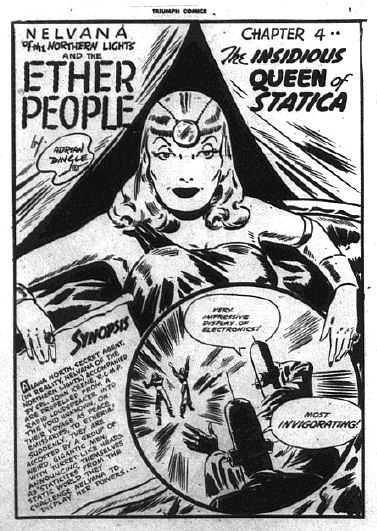
Adrian Dingle seems to have been the Dean of the WECA artists creating Nelvana for his own Hillborough Studios and then becoming art director for Bell Features and doing the majority of their covers besides being responsible for the creation of Nelvana and The Penguin among others. He had had significant art training before drawing comics in the early forties.
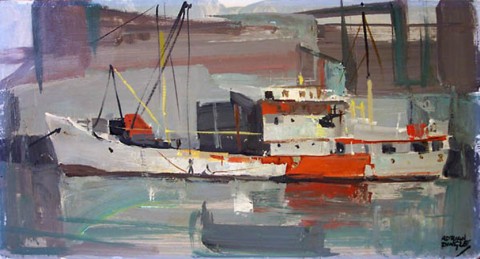
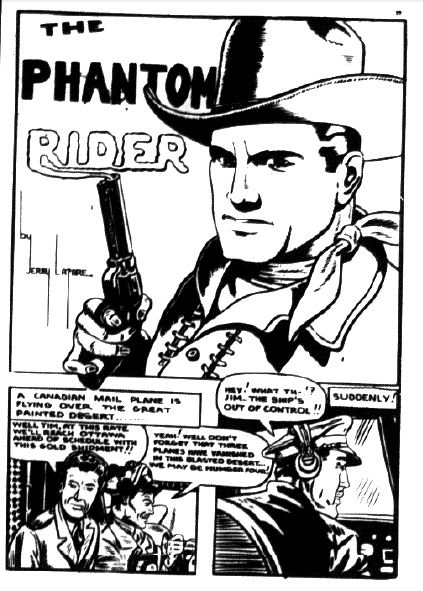
Jerry Lazare is best known for his Nitro, Drummy Young, Purple Rider, and The Dreamer strips in Bell Features books. He is still going strong today with his own website [http://www.lazarestudio.com/].
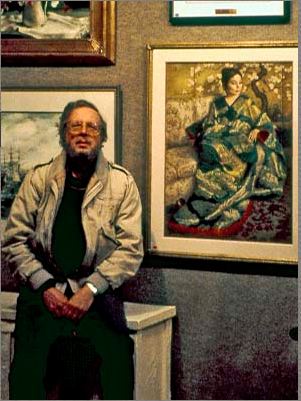
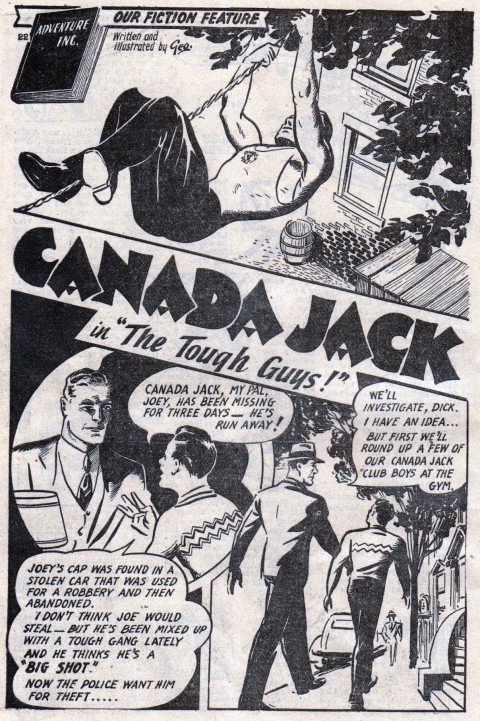
Over at Educational Projects in Montreal we had George M. Rae who created Canada Jack and later in his career became president of the Arts Club of Montreal.
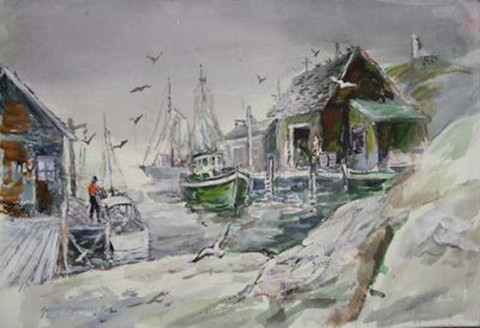
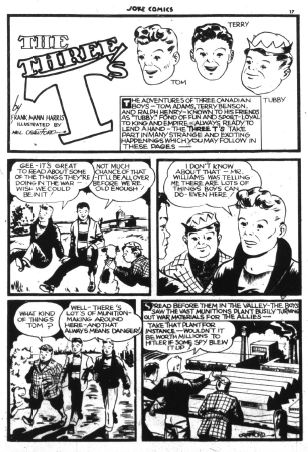
Mel Crawford who drew “The Three T’s” in early Joke Comics and who illustrated the first “Young Commandos” strip in Commando Comics No. 1 (the Canadian tip of a huge iceberg of accomplishments south of the border that includes Dell, Gold Key, and Golden Book art) is still with us and doing well in his later life fine art career [http://melcrawford.com/].
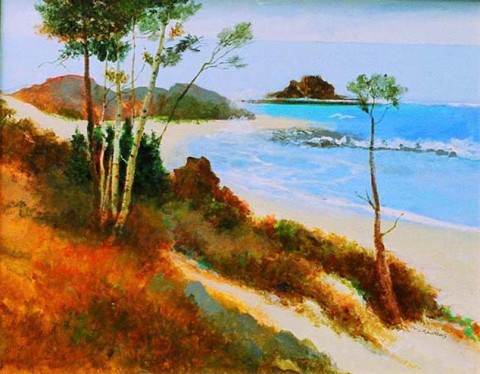
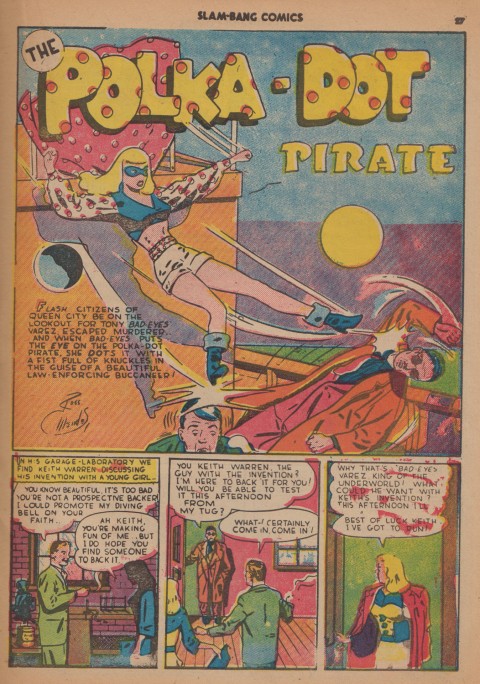
Ross Mendes, the teen-age creator of the Polka Dot Pirate and the one-shot (Active Comics No. 28) Top Hat ‘n’ Tales detective team became a strong abstract artist after the forties.
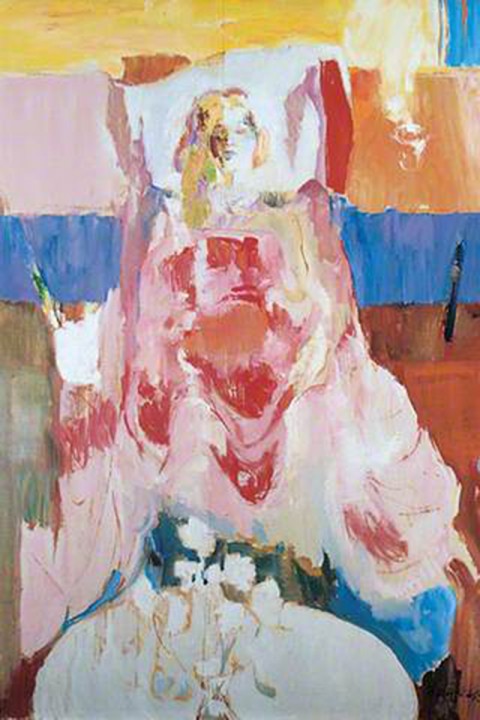
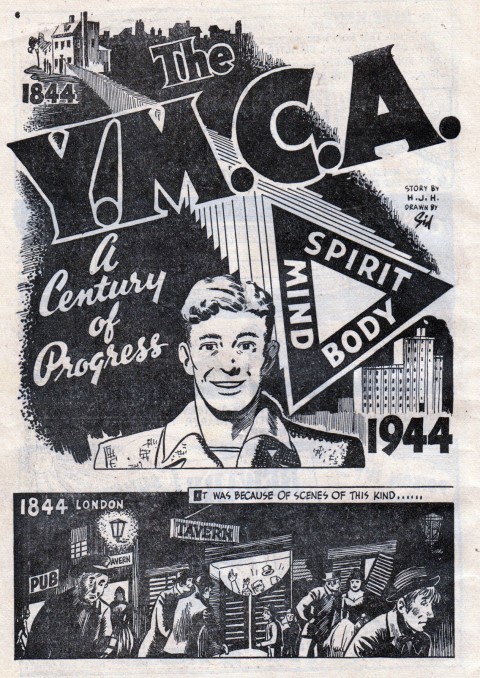
Sid Barron, who did many stories for Educational Projects and perhaps was more famous for his editorial cartoon work in the sixties and seventies, produced some fine art pieces that sold well.
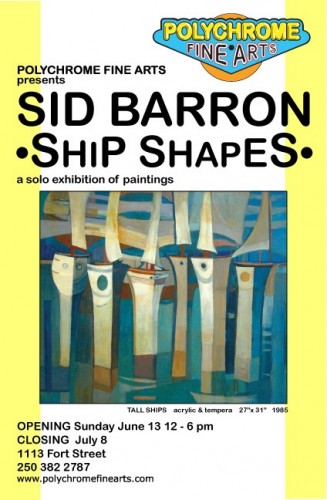
I can even find one piece of fine art from Ed Furness, Adrian Dingle’s counterpart at Anglo-American Publications.
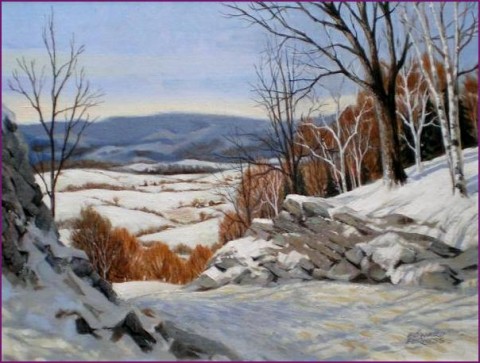
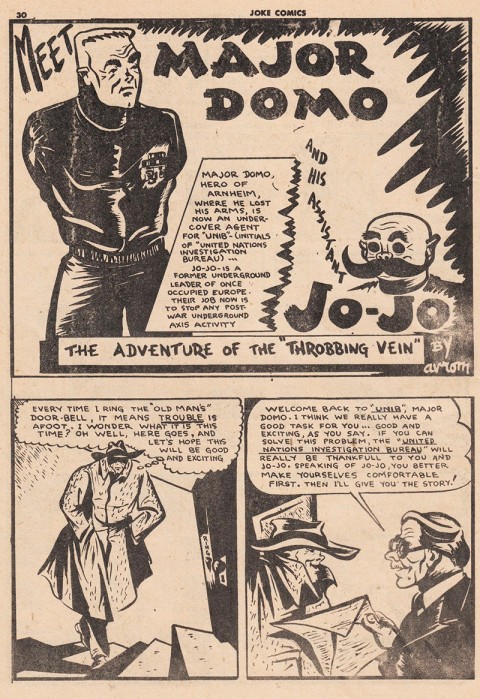
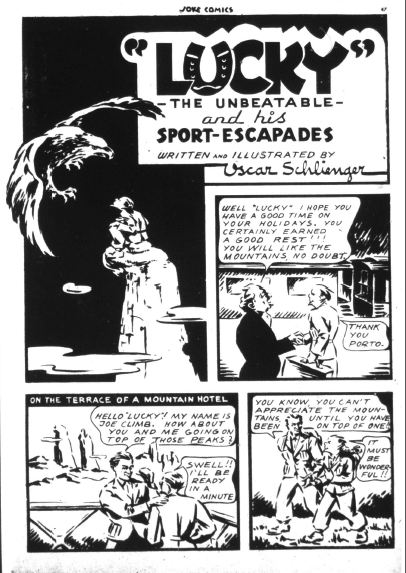
And I cannot leave out two of my favourite Bell artists, politically charged father of Lovin’ Spoonful guitarist Zal Yanovsky, Avrom Yanovsky (creator of Major Do Mo), and Swiss born Oscar Schlienger (creator of Colonel Braggart), both doing most of the comic illustration in Joke Comics. Avrom became best known for his political cartoons and murals and Schlienger for producing and teaching art in the Bancroft area.
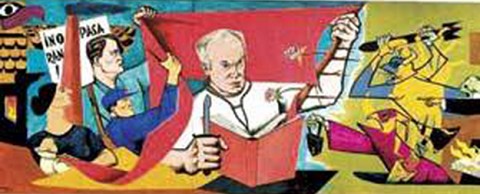
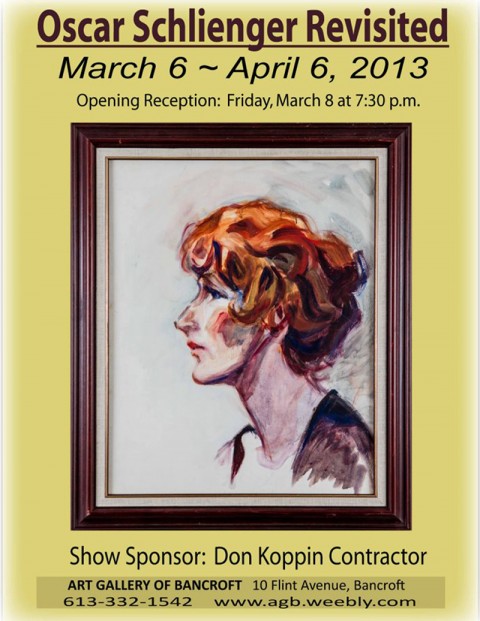
Finally, Jack Tremblay, (who is also still with us) teen-age creator of Crash Carson for Wow Comics under the name, Jen-Jacques Tremblay, had a prominent career as a fine artist in the Montreal area starting in the seventies, though I can’t seem to find a proper example of his work.
I would love it if anyone could add any more info to the fine art careers of these and perhaps any other artists from the WECA period.

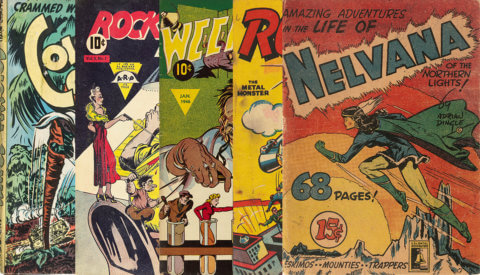
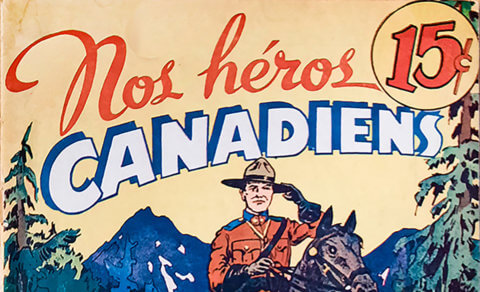
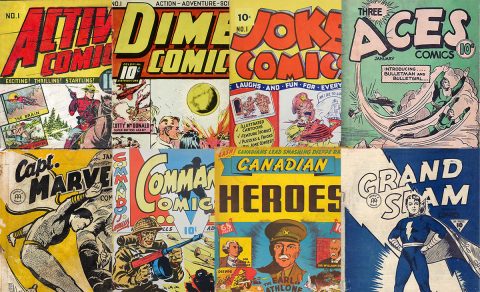
Great stuff. have to check out those links.
Have to add John Stables as probadly my favorite of the “whites’ artist.
Thanks, Peter. There is so little info on those Maple Leaf Publications artists like Jon Stables, Vernon Miller, Bert Bushell, Ley Fortune, etc. is so sparse. I hope more will surface in the near future. I neglected to include a link to the Ross Mendes web site at: http://rossmendes.ca/
in the post and recently found a youtube video that features a Sid Barron show by his wife Jesi Barron at:
http://www.youtube.com/watch?v=aG9ZCl948Ps
The most obvious artist missing here is of course Harold Town, one of Canada’s Painters Eleven along with others like Walter Yarwood and Oscar Cahén. Town worked so very briefly at Anglo-American but because of his afterword published in the GCCB book he’s gotten mentioned in almost every newspaper article published about Canadian comic books since.
I imagine he didn’t make your post as it’s one of those ‘oh everyone knows that’ moments.
Thanks again for more information to explore, Jim. I simply forgot to mention Harold Town in quickly cobbling up the post. He does indeed deserve a mention, but it seems so difficult to confirm which work he did for Anglo-American Publications. His biographies cite work on the Minute Man strips in their Whiz Comics and Mel Taylor in Kitchener has related a conversation he had with Ed Furness about Ed’s confirming that the cover to Grand Slam Comics Vol. 3 No. 2 which shows Capt. Marvel Jr., back to us, throwing one German tank onto another while being strafed by Nazi planes, was done by Harold Town. He says that Ed said that Town decided not to draw Capt. Marvel Jr.’s face on his body (he placed it as an insert in a circle close to the bottom of the cover) as a form of protest because Fawcett in the States were so concerned that the Canadian redraws would not capture the features of Capt. Marvel and his teen age counterpart properly that they sent photo stats of profiles and and full-front faces of its characters to Anglo-American so that they could cut-and-paste them onto the bodies of the lead characters that they drew. It seems that Town had a tough time putting up with this.
I am not familiar with the comic book work of Yarwood and Cahen but I do know that they were part of the well known Painters Eleven group in Canada after the war along with Town. This does open up avenues for more exploration. Thanks, Jim.
I forgot to add that the black and white photo of an artist at his easel that’s on the post’s opening link is that of George Menendez Rae at work.
Hey Ivan, is this the same Ross Mendes who was or is teaching at OCAD?
http://rossmendes.ca/ROSMENGraphics/rosscolour190.jpg
I had no idea he started out in comics. I never had him as an instructor when I was studying there but my fellow classmates spoke very fondly about him. Kind of a wacky fellow… very open mined.
Yes, Charlie, it’s one and the same. This is part of the biography on the web site:
Ross Mendes was born in Toronto and painted and exhibited in London, England;
Capetown and Johannesburg, South Africa; and Ibiza, Spain.
Returning to Canada he taught art at The New School, Cambrian College,
York University, Arts’ Sake Inc., and the Ontario College of Art and Design.
Ahhh… sorry, I totally missed your link to his site. A lot of frustrated artists in the commercial world… eventually, many of them end up teaching… like ME! Many thanks.
^_^
I see that I may have misread your post concerning Yarwood and Cahen. I see that you were only listing other members of the Painters Eleven group along with Town and not implying that they were war-time comic book artists as well.
That sounds like an interesting talk you had with Mel Taylor. Are you going to go further with that and the Waterloo comics exhibit in your next column?
Town mentions one of the stories he worked on had Minute Man encountering Hata Hari, this is in Canadian edition of Whiz Comics vol.2 #10 if that helps you. It’s even in the GCD = http://www.comics.org/issue/646172/#828895